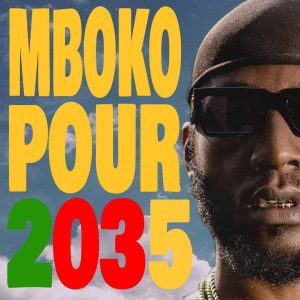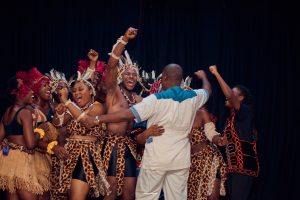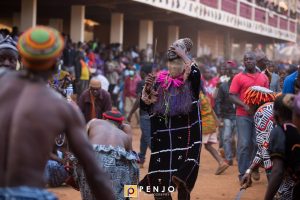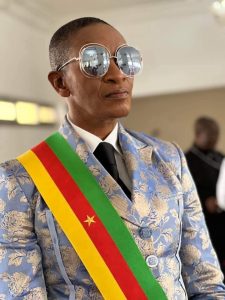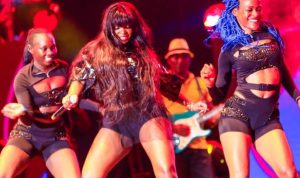One of the most read articles on African Arguments this week was Brian Too’s piece on what the next chapter of Afrobeats would look like.
Brian in the piece traces how far Afrobeats have come, with stars like Wizkid and Burna Boy flying the flag high.
He goes on to zoom more particularly into the influence of Fela Kuti’s Afrobeat and its place in the art today. With this, he confidently posits that “Afrobeat forbearers laid down the cultural groundwork that Afrobeats artists now enjoy”.
Zooming out from Nigeria which until now remained his principal country of inference Brian’s work drifted towards the likes of Miriam Makeba and Hugh Masekela and how they too contributed to the discourse today. But again he was quick to return ‘home’ to Nigeria where he praises Sunny Ade’s Juju music as a success for the failing 1979s highlife music.
I am in tandem with the author when he says the last decade has been a homestretch for Afrobeats. And I subscribe to his ideology that the unending pool of incredible Nigerian talent (Rema, Ckay, Tekno, etc) he cites are definitely massaging the speeding legs of Afrobeats today.
It has all been smooth and enjoyable so far. But Brian knows that does not tell the whole story. One of the greatest stumbling blocks facing artists today like with their predecessors (Fela, King Sunny) back in the day, is signing to music labels.
As beneficial as it may be, he notes that it has the potential to cut short creativity as labels more often than not, tend to focus on content that generate mass appeal to European and American audiences.
The piece adequately sums it up as a relay race with Afrobeats stars currently in possession of the baton. “The world is eager to see what happens next”.
It is not for nothing that a majority of examples and perfect cases that arise remain tied to Nigeria. While it definitely has its place in the conversation, the absence of other countries could partly be tied to the failure to own and promote their narratives.
A simple Google search on Cameroon Afrobeats would give you playlists compiled in 2021 and few if at all any in-depth articles.
We can’t even agree on whether or not we are in the race. What many have to show are song fliers and challenges.
Of course there is no textbook way to go about it and this is in no way an attempt to berate honest efforts of artists out there. It would however be a disservice to look them in the eye and tell a lie. I mean, we can. But we shouldn’t.
If we must find ourselves in this relay race, we need to have not only the runners, but the ones running the commentaries too. We need the ones telling they at home who’s in what position and why.
The absence of back stories and solid narratives are a key reason for us being lost in the conversation. We keep clinging to the Makossa days, absorbed in our ‘we are all-round best’ trance.
Like anthems and political slogans taught us from ages back, we recite names like Manu Dibango, Tom Yoms, Tchanna Pierre and the likes. As valuable as their contributions were, their time is way gone. We could sing their praises from now to next year and it won’t change a thing. Capitalising on the foundations they laid, will.
Work dey!


